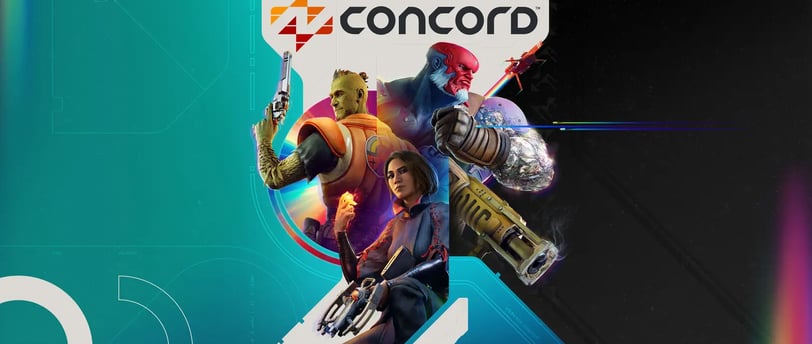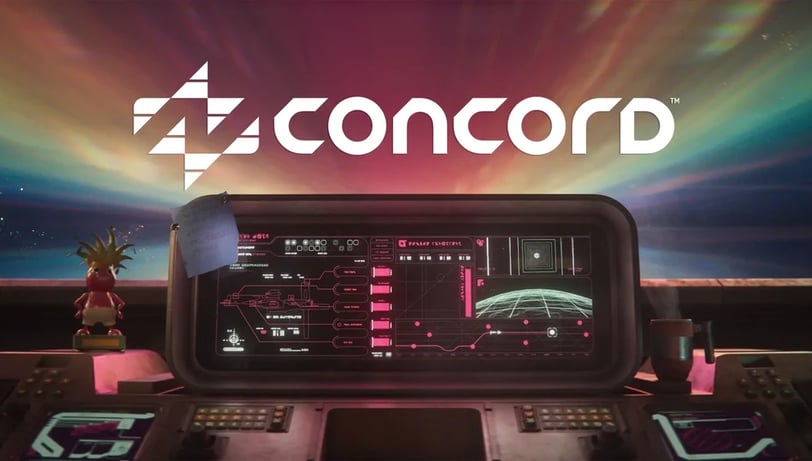Sony and Concord - A cautionary tale for developers of all kinds
When you ignore your target market and do not take responsibility as a manager you get Concord.
BUSINESSMANAGEMENTFEEDBACKMAUCEODESIGN PROCESSWORK CULTURE


The context
Timeline
2018
Firewalk Studios is formed.
2023
"We’re thrilled to expand upon our collaborative relationship with Firewalk Studios and formally welcome the team to PlayStation Studios" - Sony Interactive.
"Firewalk’s innovative approach to connected storytelling and its commitment to high-quality gameplay continues to exceed our expectations,". "I think fans will be very pleased when they see what Firewalk has in store for them.” - Sony Interactive.
2024
Concord game was launched with less than 25,000 units sold. The game was live for 12 days and then Sony shut down the game's servers and refunded all the copies sold.
Resellers were told to scrap all the games, marketing, etc.
How much was invested?
Sony did not release the statement for this. They bought Firewalk Studios and the game came with the studio. So the game probably cost anywhere from 100-200 mil.
The cost is based on 150+ people involved in the making of the game and the 5 years running even though there are reports that the game was being developed for 8 years.
Sony even went ahead with multiple marketing operations for this launch and they even made a controller for the game.
Who is to blame?
People speculate about who is to blame and how a giant like Sony let this happen.
In my humble opinion, it's Sony's fault. Whoever it was that said yes let's buy the game studio. Along with that person the next in line is the one that managed this project. As you might notice the market is evolving. We have a mix of players of all ages playing the same games. But when you saturate the market and you don't innovate you get a flop.
You might look at the past Netflix and Hollywood flops in general. The oversaturation with heroes, the oversaturation of badly written characters, and even worse casting for the sake of sending a message. Something that was reserved for smaller-scale movies that provoked thoughts and changes in opinions. But they did write their characters with depth and had a sense of how to produce movies.
In my past blog posts about Giving feedback and Receiving feedback you can see how the company benefits from feedback.
If you take a look at Baldurs Gate 3 which was a massive hit in an otherwise niche gaming of isometric RPG. The game was a hit because of how it was developed. They appealed to the target market. They had early access to get much-needed feedback and they polished the game. The market was not oversaturated and was thirsty for a new game in the genre especially in AAA installment.
Now back to Concord. If we look at what Sony bought. They got a full studio that was almost finished with the game. Did they test it with the market? Nope. Did they invite people to try it out before release? Nope. So it was a closed development. That is how it's looking so far.
So there was nobody there that said - "Hey, how about we see what people think about the game before we release it?"
I mean it's a new original IP but it's a 5v5 live game. The market currently has enough of those that are unique in their own way.
In a company like Sony, there are multiple layers of management that failed to test the product. They all share the blame.
This reminds me of how British Petroleum and other giants develop software. They develop something, managers bloat the hell out of it and nobody wants to use it in the end. Then they hire people to fix it. Wasting money on development and not owning the process.


How to avoid a flop like this?
Responsibility, expectations, and proper management
Now every development has stages. When you have high stakes like a couple hundred mil in the game. You want to make sure to TEST if you are going in the right direction.
It's the most basic thing a designer usually does. They sketch and test their creations. In non-IT development, you still have to test your product to see if it fits. It took 5-8 years to develop, and if you do not plan for that it might be that your game sucks by the release date.
In this particular case when Sony acquired Firewalk Studio, they should have requested some testing. They should have insisted on bringing in some game reviewers. Get some beta testers and LISTEN TO THE FEEDBACK. Since they won't comment on this we will never know if they were getting feedback but chose to ignore it.
Games are a perfect escape from reality. If you expect people to pay you for that then it should be pretty good. Especially since you are SONY.
Even though I am not in Game development, it's still software and I know how that gets developed. When a manager says - we don't have time to test - you know it's got a high chance of dropping into the 10th terrace of Dantes inferno. The "not my job" terrace.
When doing updates to the stakeholders, be honest. Even though you spent 3 years or even 5 it's not too late to PIVOT. If the feedback is not positive, run some research, and see your options.
Run some numbers and get back to your stakeholders with options. For Sony, it would have been better to scrap the game before release. That way marketing would not be a part of the sunk cost. Maybe they could have pivoted to a platformer or even a Single Player with OPTIONAL multi.
Feedback to everyone involved is a MUST. It's not optional. If you want to succeed you should be able to muster the courage and stop the shitstorm before the floodgates open.


Conclusion
At the end of the day, the Concord fiasco isn't just an isolated incident—it's a glaring example of what happens when companies overlook the fundamentals. Ignoring your target market, skipping essential testing phases, and dismissing valuable feedback are surefire ways to set yourself up for failure. Responsibility, realistic expectations, and proper management aren't just buzzwords; they're necessities.
If you're nodding along and wondering how to steer clear of such pitfalls, I'm here to help. With my experience in software development and process optimization, I can work with you to refine your approach, engage your target audience effectively, and implement feedback loops that actually make a difference. Let's collaborate to ensure your projects don't just launch—they succeed.
Don't wait for a flop to make a change. Reach out, and together we'll turn potential disasters into success stories.


